from NDTV News - India-news https://ift.tt/2XddIDZ
Eid al Adha: Muted Bakrid Festivities, Social Distance At Jama Masjid
from NDTV News - India-news https://ift.tt/2XddIDZ
Microsoft In Talks To Acquire TikTok's US Ops, Trump Wants "Ban": Report
from NDTV News - World-news https://ift.tt/315lpxn
Microsoft In Talks To Acquire TikTok's US Ops, Trump Wants "Ban": Report
from NDTV News - Special https://ift.tt/315lpxn
Bipartisan Support In US Grows For India Against Chinese Aggression
from NDTV News - Special https://ift.tt/30iLTwk
Bipartisan Support In US Grows For India Against Chinese Aggression
from NDTV News - India-news https://ift.tt/30iLTwk
Bal Gangadhar Tilak: Freedom Fighter Who Said, "Swaraj Is My Birth Right"
from NDTV News - India-news https://ift.tt/2XesgTY
Bipartisan Support In US Grows For India Against Chinese Aggression
from NDTV News - World-news https://ift.tt/30iLTwk
India, Israel Conducting Trials For Test That Detects COVID In 30 Seconds
from NDTV News - Special https://ift.tt/3fiNoyL
Congress Leader Welcomes Education Policy, Apologises to Rahul Gandhi
from NDTV News - Special https://ift.tt/2DabLl9
T-Shirts Not "Dignified" For Government Employees: Madhya Pradesh Order
from NDTV News - Special https://ift.tt/2PchuJx
Was Living With Sushant Rajput, Left On June 8: Rhea Chakraborty To Court
from NDTV News - Special https://ift.tt/2D69RSz
Over 1,400 COVID-19 Deaths In US In Last 24 Hours: Report
from NDTV News - World-news https://ift.tt/30hw9JN
PM Modi's Pakistani Sister Sends Him Rakhi, Wishes For His Good Health
from NDTV News - Special https://ift.tt/30id0aQ
India COVID-19 Cases Cross 16-Lakh Mark, Fifth-Highest Deaths In World
from NDTV News - India-news https://ift.tt/3hWS9zD
The Well of Zamzam is a lasting miracle
JEDDAH: It is one of the most enduring miracles of Islam, representing God’s mercy. The Well of Zamzam first sprang 5,000 years ago under the feet of the Prophet Ismael after his mother Hagar, the second wife of Ibrahim, ran seven times between the two hills of Safa and Marwah looking for water to save her thirsty son.
The name of the well comes from the phrase Zome Zome, meaning “stop flowing,” a command repeated by Hagar as she attempted to contain the spring water.
The well’s ever-clean water has no moss, insects, fungus, or any other impurities. It contains a higher level of natural minerals than normal desalinated water. For this reason, it has a distinct, heavy taste.
Pilgrims are always keen to drink from the well and carry bottles filled with the water to their homelands since it is believed to be a natural source of healing for the sick, according to the Prophet Muhammad (peace be upon him).
The development and maintenance of the Well of Zamzam has been of major importance, with the water source protected for centuries in many ways.

As the main source of water for visitors to Makkah in ancient times and for present-day pilgrims, the well has never stopped generating the blessed water for Muslims, except for a short period of time.
Throughout the ages, the well was guarded by Abd Al-Muttalib bin Hashim, grandfather of Prophet Muhammad, then by many Muslim caliphs up until modern times, when it fell under the protection of Saudi kings starting with the founder of current Saudi Arabia, King Abdul Aziz.
In the past, the holy well was protected in a primitive way, but during the late King Abdullah’s reign, a great leap was taken with regard to developing the way the well was maintained. He changed the methods of filling and distributing water across the Two Holy Mosques.
He also started the King Abdullah bin Abdul Aziz Zamzam Water Project (KPZW) in 2013.
With the increasing number of visitors coming for Umrah and Hajj, the demand for Zamzam water also rapidly increased. This necessitated more development for the well.
The construction cost of the project amounted to more than SR700 million ($187 million).
The project did away with many of the old unprofessional methods related to pumping, filtering, distributing and filling the water, replacing these with the newest, safest technologies.
In the past, the water used to be bottled manually in different-sized containers, without following an authorized bottling process, resulting in unwanted water pollution.
With this new project, however, there are two main sizes of authorized containers — 5 and 10 liters — in which the water is treated, bottled, stored, and distributed efficiently.
Before the end of the Hajj or Umrah journey, visitors make sure to get a bottle or two of Zamzam water before they leave, which in previous years used to result in chaos and unorganized queues. Today, the project allows water containers to be distributed to pilgrims inside buses or in airports in order to save time and prevent crowding.
Inside the Two Holy Mosques, the water is provided in coolers that undergo a daily cleaning and filling process.
The online purchase of Zamzam water is a part of the National Water Company’s project, which was initiated following the suspension of sales as a precaution during the outbreak of the novel coronavirus pandemic.
Zamzam water is now distributed via the Saudi electronic business platform HNAK, which offers home delivery service as well.
Extraction, pumping and continued surveillance of storage and pipelines are achieved through the optical fiber technology of the Supervisory Control and Data Acquisition network.
With all these technologies, the quality of Zamzam water’s natural minerals is preserved and sustained according to meticulous research carried out to determine the most suitable methods of pumping and filtering.
To prevent all the characteristics of Zamzam water from being affected by any external natural contaminations, the Zamzam Studies and Research Center has applied rigorous quality control.
“In order to be able to manage the Well of Zamzam in a sustainable manner, we need to have a full understanding of the environmental and hydrogeological setting of this holy well and the sources of water reaching it, including water conductors in the area,” Samer Showman, president of the research center, told Arab News.
“We need to see how the water is being stored and how fast it is moving and the types of minerals it extracts through its journey between the rocks to understand what characterizes the fingerprint of Zamzam water.
“We have linked the mathematical model with a rainfall data network and rainfall stations in a different part of the aquifer to determine the exact volume and quantity of water that can be extracted throughout the year in Wadi Ibrahim,” he added.
Showman said that a special laboratory for Zamzam water in Makkah tracks and tests different samples of the water, which are analyzed on a weekly basis to maintain water quality.
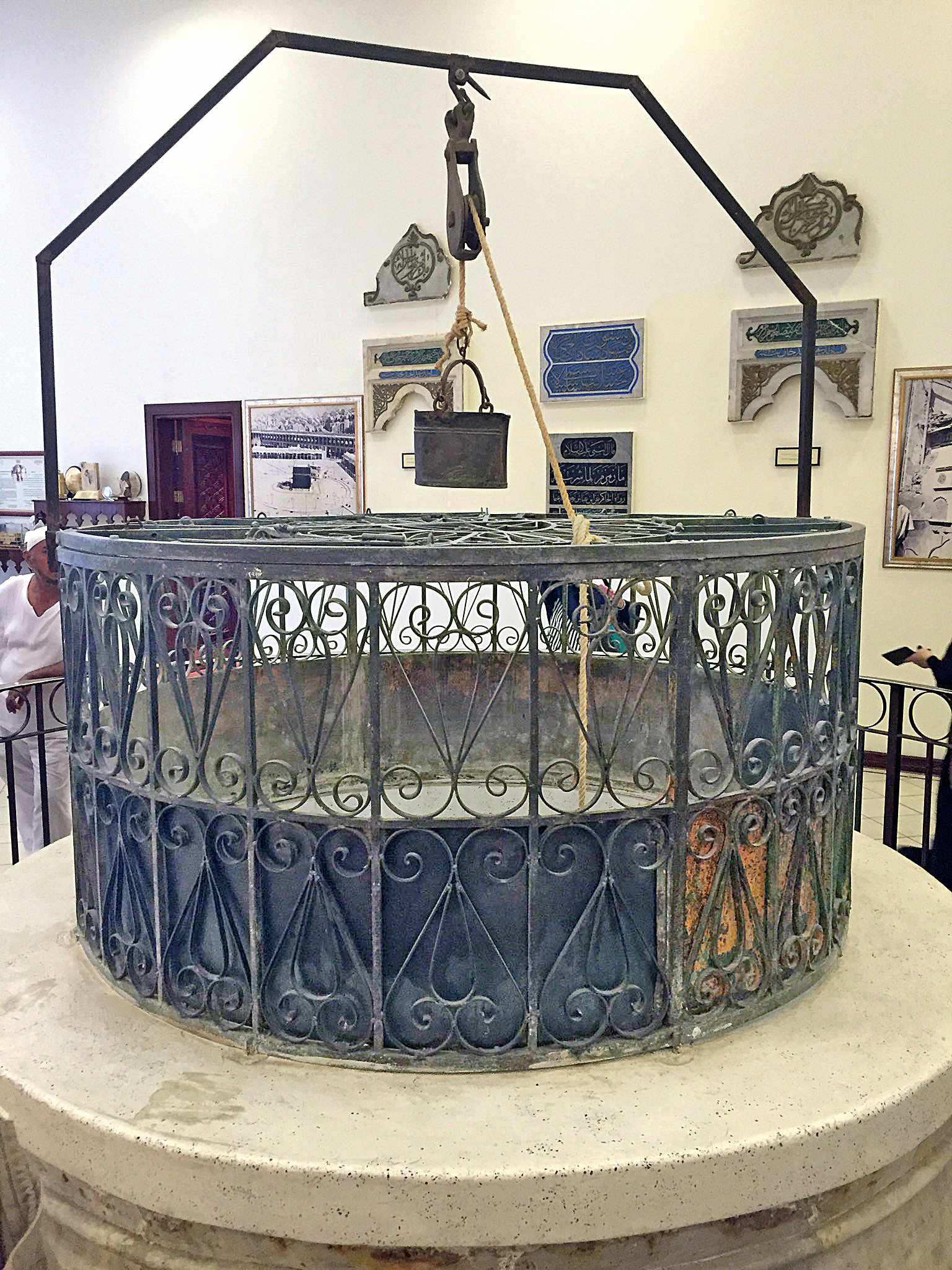
from Saudi Arabia https://ift.tt/2DrvcW9
ThePlace: Al-Muftaha village in Saudi Arabia’s Abha region, dates back to 260 years
The village of Al-Muftaha in central Abha has become one of the most significant historical and tourist attractions in the city, especially after the rehabilitation of its beautiful heritage buildings, theater and tourism services.
The village is a beautiful little quarter around a mosque daubed with calligraphy. There are galleries that showcase the work of regional craftspeople and artists whose work is often colorful and figurative.
Al-Muftaha dates back 260 years, its houses built according to the Asir region’s traditional construction style.
Small museums either side of the mosque tell the story of Abha’s artistic heritage, including how the status of local families was defined by the quality of the murals in their homes.
This photograph was taken by Fatma Al-Shuaily as part of the Colors of Saudi competition.
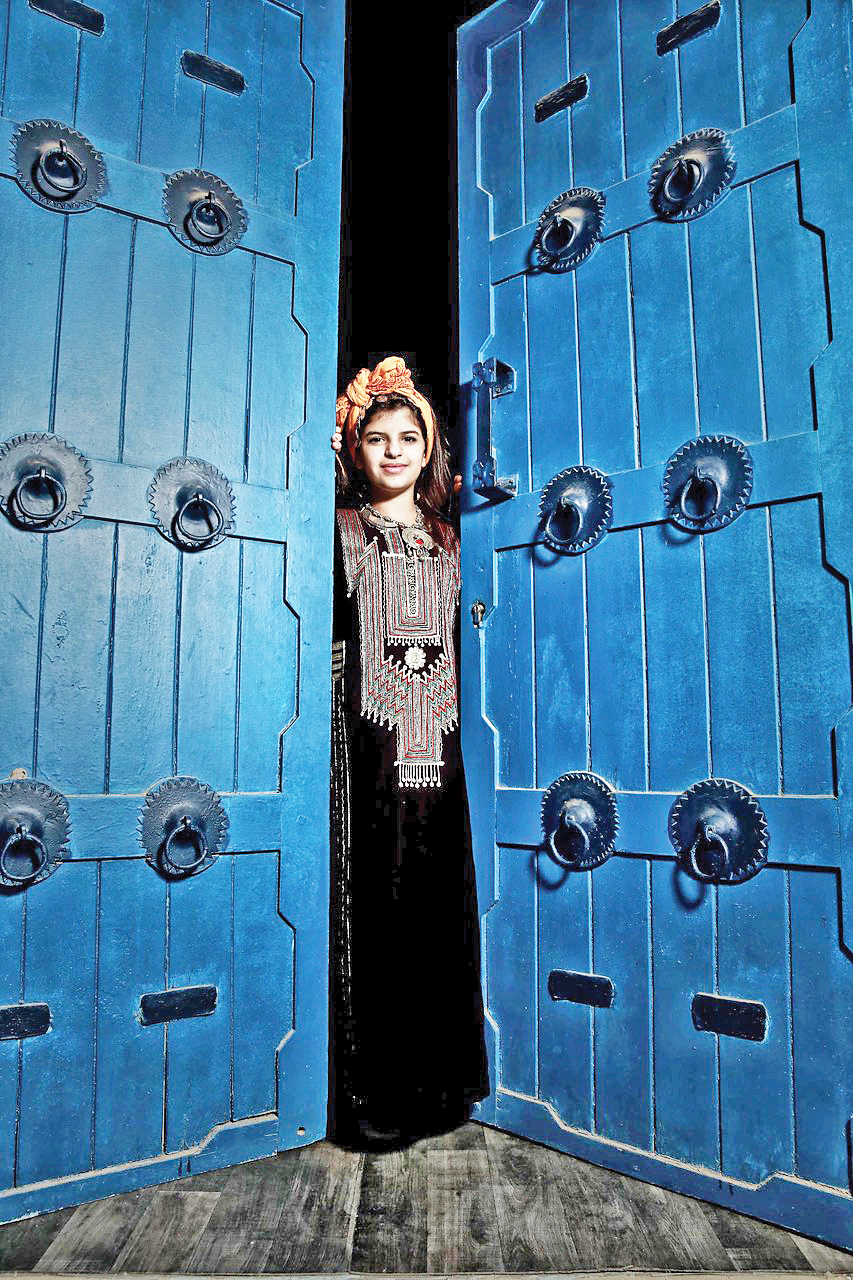
from Saudi Arabia https://ift.tt/2D6GqQg
Saudi minister meets Yemeni speaker in Riyadh
RIYADH: Saudi Deputy Defense Minister Prince Khalid bin Salman met the speaker of the Yemeni parliament, Sultan Al-Barakani, in Riyadh. The meeting was attended by members of the presidency of the parliament, and advisers to the president of Yemen.
They expressed thanks to the leadership of the Kingdom for the care it attaches to Yemen and support for its legitimate government and the Yemeni people, and for the initiatives it has taken, the most recent of which were the efforts led by Crown Prince Mohammed bin Salman to accomplish the Riyadh agreement and introduce the executive mechanism to accelerate its implementation.
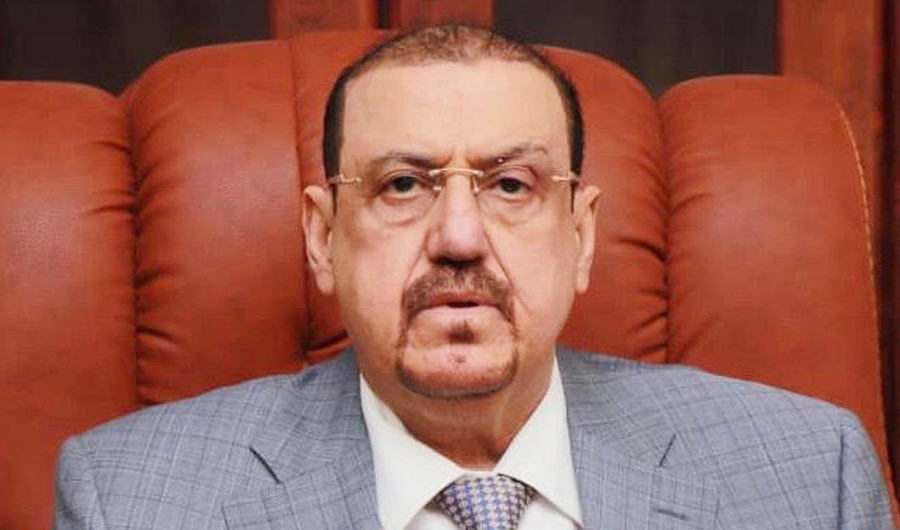
from Saudi Arabia https://ift.tt/2PahbPo
Jet ski displays rev up virus-curtailed Saudi beach festival
UMLUJ: World champion Saudi jet ski handlers will perform a series of displays as part of the virus-curtailed Umluj Beach Festival.
Organizers of the Red Sea coastal event have been forced to limit this year’s festival activities to marine sports only due to coronavirus disease (COVID-19) precautionary measures.
Jet ski performances by Saudi world championship winners in the sport, along with sea games on the sandy beach of Duqm Park, will take place over two days starting on Saturday.
This year is the second edition of the festival organized by Blue Light and supervised by the Saudi Water Sports and Diving Federation. As well as maritime displays, visitors can also explore picturesque Umluj beach and sample food and refreshments offered by local families.
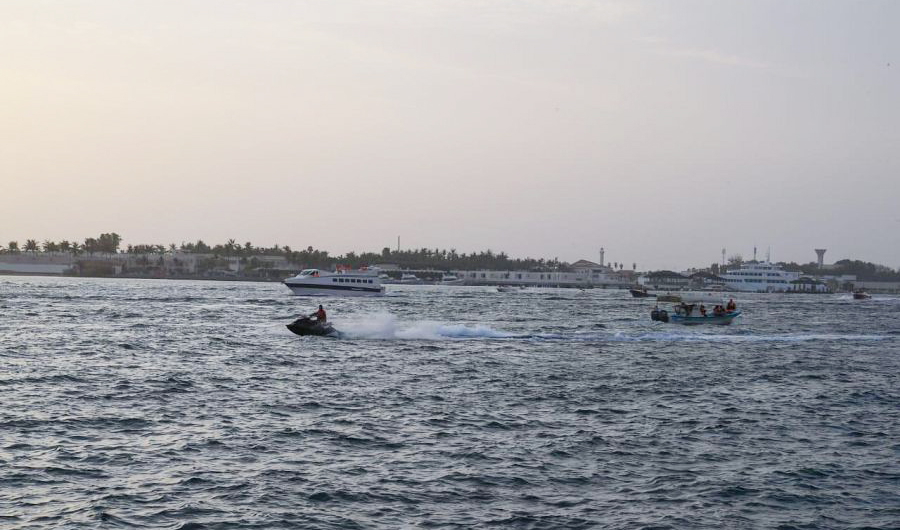
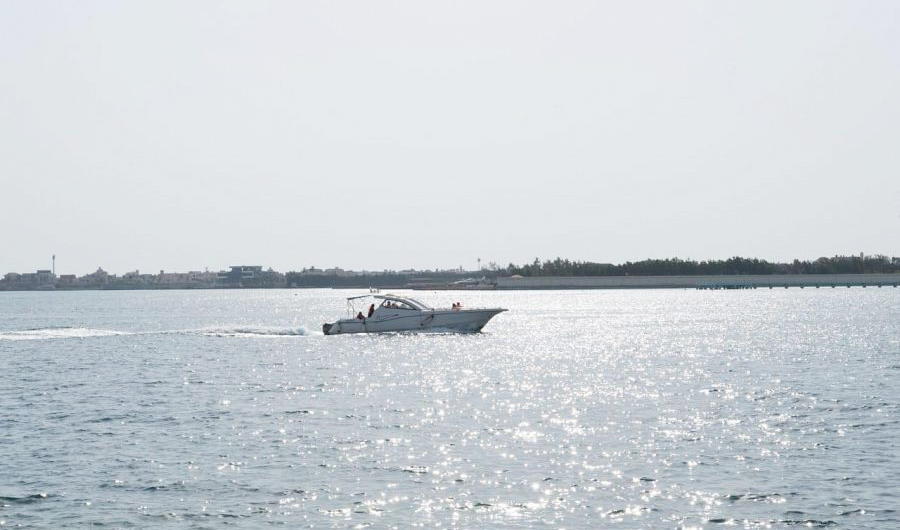
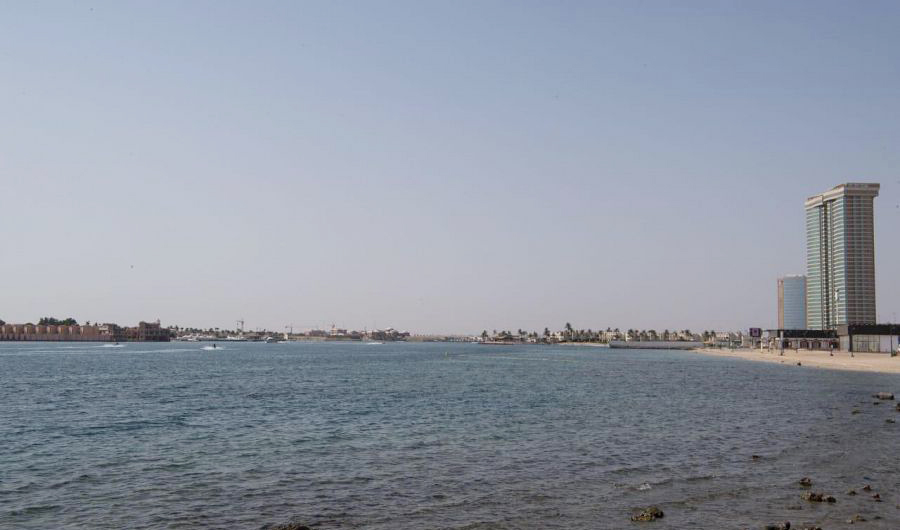
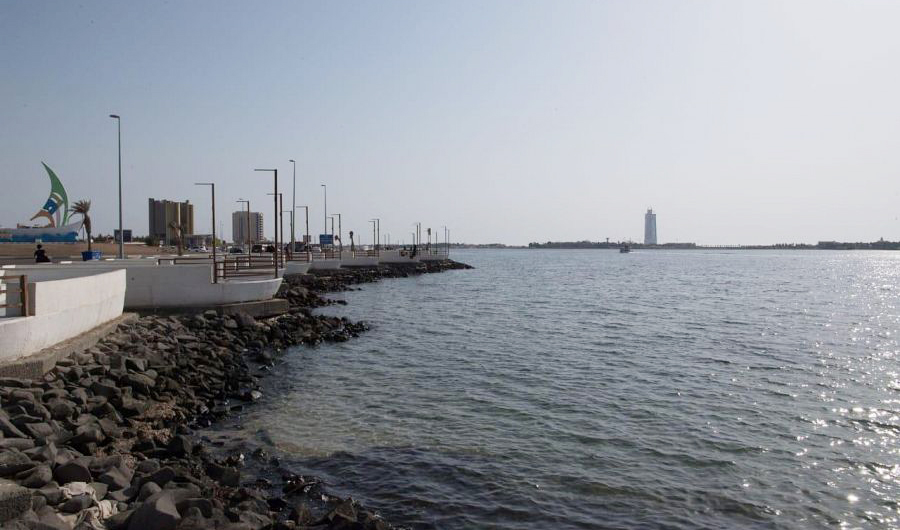
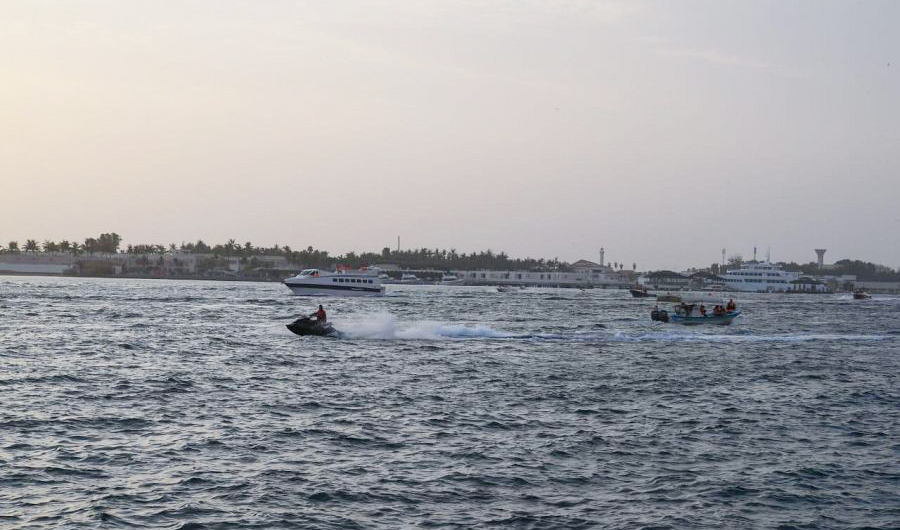
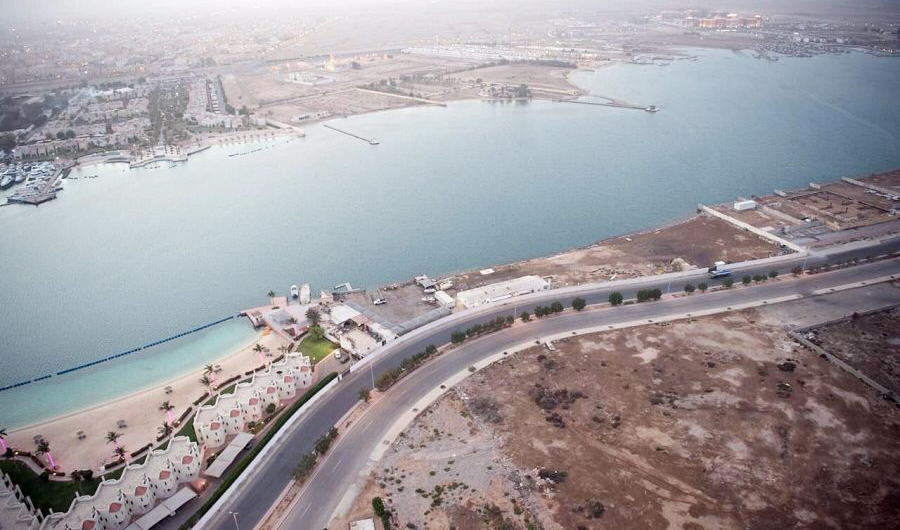
from Saudi Arabia https://ift.tt/39Mt6ww
Saudi aid agency distributes food baskets in Yemen
SOCOTRA: The King Salman Humanitarian Aid and Relief Center (KSRelief), in cooperation with the Benevolence Coalition for Humanitarian Relief (BCHR), distributed 504 food baskets to 3,024 people in the two villages of Murabba Drakbu in Socotra governorate, Yemen.
During July, KSRelief implemented programs and activities for orphaned children in Yemen as part of the “Seed of Safety” project providing child-friendly spaces to ensure the safety of youngsters and restore their sense of normality.
These spaces provide children with opportunities to play, in addition to enhancing their skills in a safe and motivating environment. Those programs targeted 600 orphans in Aden, Marib, Sanaa, Al-Bayda, Jouf and the west coast.
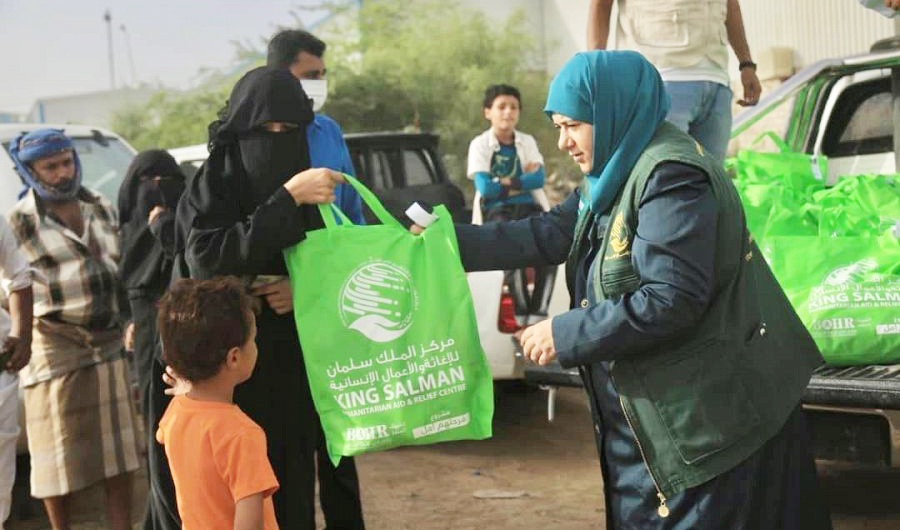
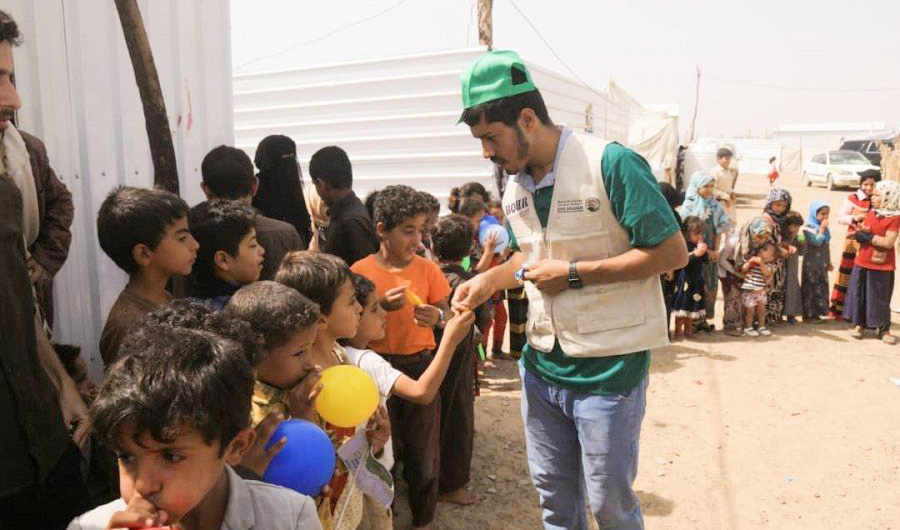
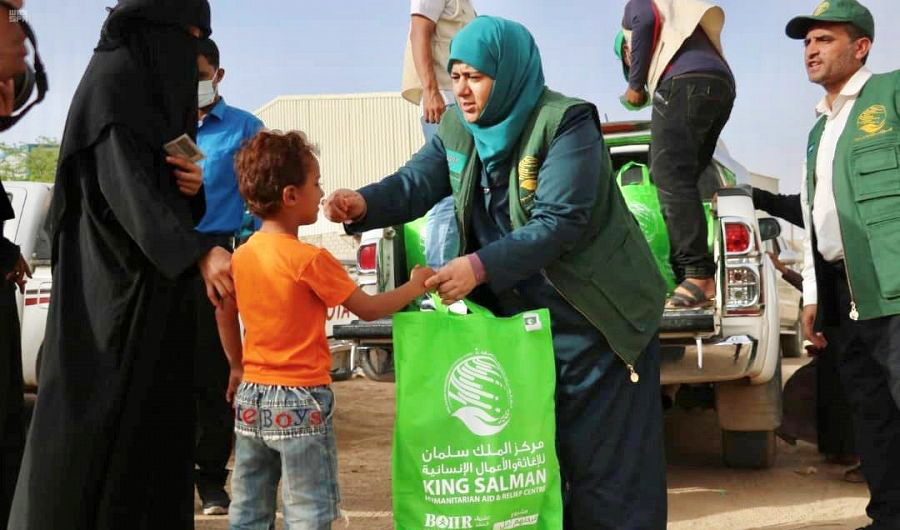
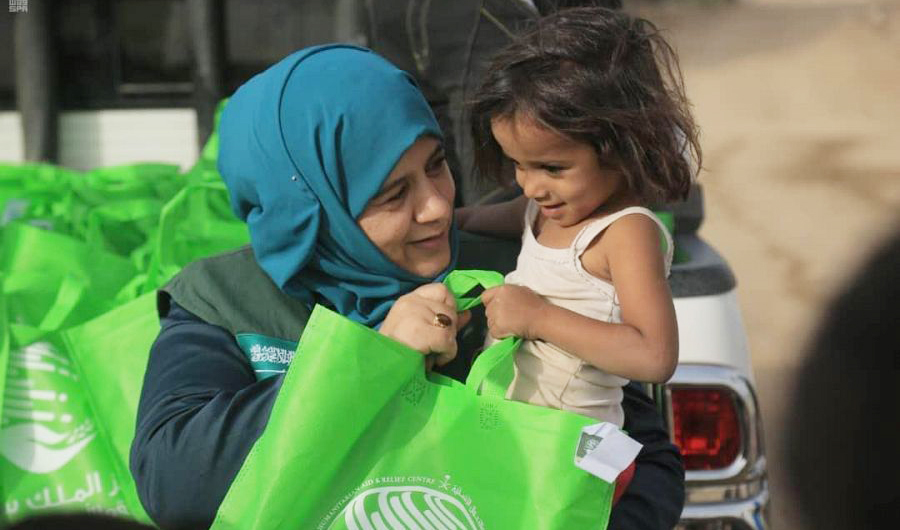
from Saudi Arabia https://ift.tt/33e0gDH
Pandemic changes animal sacrifice ritual in 2020
RIYADH/JEDDAH: Udhiyyah, the ritual of animal sacrifice during Eid Al-Adha, has changed this year because of the coronavirus pandemic as Saudis and expats opt to stay away from cattle markets.
People living in the Kingdom are instead finding other ways to observe this practice including the use of technology for online ordering or sending money back to their home country.
“This year Eid Al-Adha will be different for expatriates in Saudi Arabia as they will be offering the sacrifice while sitting at home to follow the medical advisory of staying away from gatherings amid the pandemic,” Riyadh resident Zakir Azmi told Arab News. “Instead of swarming the cattle market and slaughterhouse, they are outsourcing it (udhiyyah) to authorized meat traders and other groups, including hypermarkets, to perform the ritual by making online payments and collecting the meat at a given time.”
Javed Hussain, who works at Umm Al-Qura University in Makkah, said that the coronavirus pandemic meant he had decided to stay away from gatherings and instead planned this year’s animal sacrifice in India.
“I am doing this to avoid the crowds at the cattle market and slaughter center and this is my little contribution in fighting or breaking the chain of the virus,” he told Arab News.
HIGHLIGHT
More Saudis are showing interest in switching to online services for the annual sacrifice ritual, and an increasing number of slaughterhouses have invested in online services so that customers can choose their preferred animal and the time of delivery through a mobile app.
Pakistani expatriate Raja Ahmed Khan said that he used to perform the animal sacrifice every year in Riyadh but that this year, due to the coronavirus pandemic, he had to avoid public gatherings at cattle markets. “I have decided to perform udhiyyah back home in Pakistan,” he told Arab News. “A little effort from my side.”
More Saudis are showing interest in switching to online services for the annual sacrifice ritual, and an increasing number of slaughterhouses have invested in online services so that customers can choose their preferred animal and the time of delivery through a mobile app.
“I decided to try ordering my udhiyyah through an online service to avoid the hustle of moving from one trader to another looking for the right animal, and worrying about how to slaughter it on the day of Eid,” Saudi national Abdullah Adel told Arab News. “I saw someone advertising for that service online and it seemed reassuring to me. The animals are well taken care of and they deliver it to my doorstep with decent packaging, and I thought it is worth a try.”
But other Saudis prefer the traditional way. Asma Saleh, from Riyadh, said the crisis had not changed her family’s Eid much. They still gathered at her parents’ house to perform the udhiyyah ritual themselves, with the men slaughtering and preparing the animals and the women dealing with the division of the meat whether it was for cooking or for distribution among neighbors or the needy.
Other Saudis are donating their udhiyyah or its cost to those who need it more, with this gesture fulfilled through local organizations or international charitable organizations like the UN High Commissioner for Refugees.
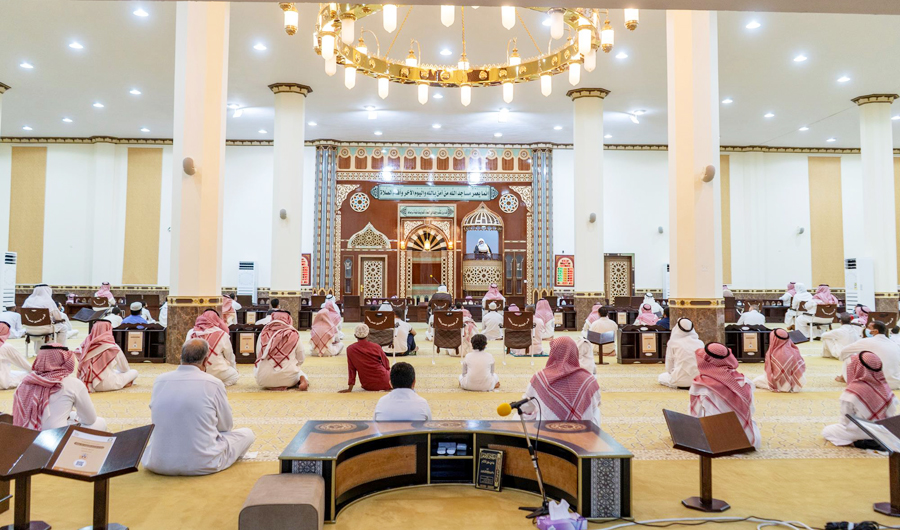
from Saudi Arabia https://ift.tt/3glNJSG
Saudi governors offer Eid Al-Adha greetings
RIYADH: Governors of Saudi regions on Friday welcomed visitors and extended greetings on Eid Al-Adha.
Regional leaders shed light on the services provided by the government of King Salman and Crown Prince Mohammed bin Salman for the visitors of the Two Holy Mosques and holy sites during this exceptional Hajj season amid the coronavirus pandemic.
Thanks to preventive measures adopted by the Saudi government, worshippers were able to perform Eid Al-Adha prayers on Friday at the Grand Mosque, the Prophet’s Mosque and all mosques in the Kingdom, while respecting social distancing.
At the Grand Mosque, prayers were performed in the presence of Imam Sheikh Abdullah Awad Al-Juhani and in Riyadh, Jeddah, Taif, Jazan, Tabuk, Qassim, the Eastern Province, Arar, Asir and Baha, the governors performed the prayers with worshippers, including Prince Faisal bin Bandar, governor of Riyadh and Prince Khaled Al-Faisal, governor of Makkah.
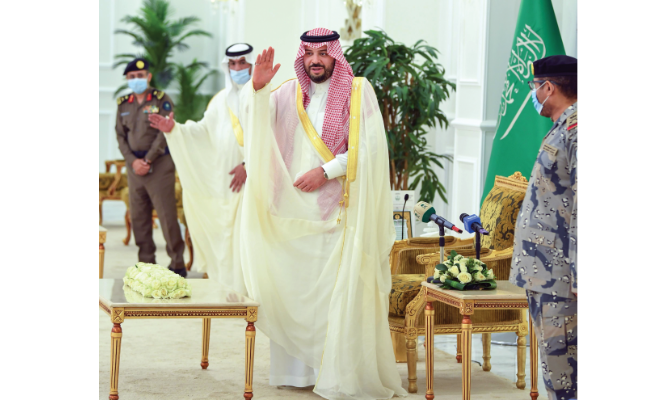
from Saudi Arabia https://ift.tt/33rwxHR
Mohialdeen Saleh Kamel, director at Saudi Arabia’s Film Authority
Mohialdeen Saleh Kamel was recently appointed to the board of directors of Saudi Arabia’s Film Authority.
The authority will be responsible for the strategic development of the movie industry in the Kingdom.
It will also help develop and support filmmaking, market Saudi flicks regionally and internationally, gather information and statistics, build a database for the sector, encourage financing and investment, propose standards, and motivate individuals, institutions, and companies to produce creative content.
Kamel, who is also the deputy CEO of the projects sector at Dallah Al-Baraka Holding Co., gained a bachelor’s degree in economics from the University of San Francisco, in the US, in 2002.
From 2003 to 2005, he worked as a general supervisor for Arab Radio and Television Network’s sports channels and served as deputy CEO of the media sector at Arab Media Co. between 2009 and 2011.
He has also been the chairman of Dallah Media Production Co. since 2005.
In addition, Kamel is on the board of directors of numerous media organizations including Jordan Media City, Dallah Real Estate Investment Co., Almaza Real Estate Development Co., Arabian Tourism and Real Estate Development Co., Arab Digital Distribution Co., Arab Media Co., and the Arab Advertising Distribution Co.
He is also a board member of Jabal Omar Development Co., Dallah Al-Baraka Banking Group in Bahrain, and Al-Khozama Management Co.
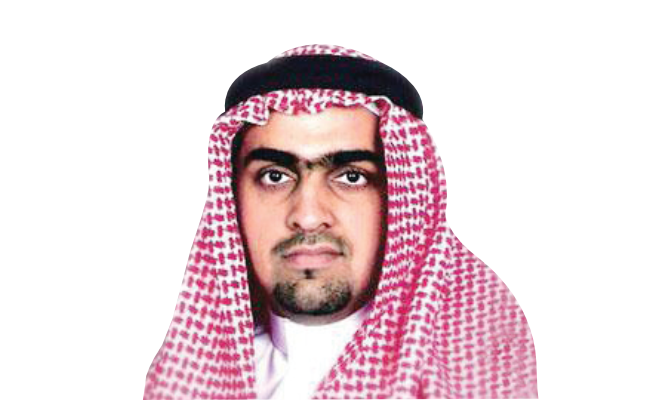
from Saudi Arabia https://ift.tt/2XhHlEh
Eid Al-Adha celebrated around the world amid pandemic
JEDDAH: Muslims marked the first day of Eid Al-Adha across the world on Friday while abiding by guidelines to prevent the spread of COVID-19. In many countries, worshippers performed Eid prayers wearing face masks and observing social distancing in a bid to contain the spread of the pandemic.
In Saudi Arabia, worshippers performed prayers at designated mosques including Makkah’s Grand Mosque and the Prophet’s Mosque in Madinah. People brought their own prayers mats with them and disinfectants were available in all mosques.
COVID-19 has temporarily put a stop to several Eid traditions, including that of embracing fellow worshippers after prayers. “We offered prayers while maintaining a distance and greeted (each other) verbally,” said Zakir Khan, an Indian expatriate in Saudi Arabia.
#Muslims around the world celebrate the first day of #EidAlAdha, by performing prayers and spending time with familyhttps://t.co/YwHAQqxnXx pic.twitter.com/UwPPFc8G0C
— Arab News (@arabnews) July 31, 2020
Many Muslims have been particularly hard hit by the need to stay away from elderly relatives, who could be especially vulnerable to the virus. Rahaf Meer, 26, told Arab News that this necessity had “ruined the spirit of Eid,” explaining that her family had divided its members according to their age to avoid high-risk groups being exposed to the younger members of the family.
“My aunt arranged a gathering just for the elderly (and) my parents are attending the gathering. We weren’t invited because my grandmother is there and we can’t hug or say hello to her,” she said. “I miss her so much.”
Donna Abudawood, 23, said the atmosphere in her home, at least, is still celebratory despite the fact that the pandemic has limited family visits and prevented her from traveling to celebrate Eid with her sister, who lives overseas.
“Since the reopening of mosques in the Kingdom, we have been strictly following precautions,” Tauseef Ahmad, a health informatics analyst at King Saud University, told Arab News. “At Eid, we refrained from shaking hands and hugging, as these steps are necessary to check the spread of the virus.”
Iffat Aabroo, a housewife in Riyadh, told Arab News: “Instead of social gatherings, we connected online with family members and close friends. Hopefully things will come back to normal soon, and we can get together on big occasions.”
Aya Karim, a 17-year-old Syrian student, said: “It is sad that we cannot spend this Eid with our extended families.”
The pandemic has also forced many people to turn to the Internet to buy livestock to sacrifice instead of visiting cattle markets in person, or to simply not make a sacrifice this year. Fahad Siddique, a 31-year-old Pakistani living in Jeddah, listed several things he could not do with his family this Eid. “Because of coronavirus, people couldn’t go for Hajj, they couldn’t travel either, and I couldn’t do my sacrifice this year as I do every year,” he said.
In Jerusalem, residents came out in large numbers early on Friday morning to offer Eid prayer at Al-Aqsa Mosque. Sheikh Azzam Khatib, director of the Jerusalem Waqf Department, told Arab News that he was pleased with the turnout. “I was happy to see Jerusalemites and we tried our best to use all of Al-Aqsa Mosque and urged people to stay outdoors and to adhere to health guidelines,” he said.
Wasfi Kailani, executive director of the Hashemite Fund for the Restoration of Al-Aqsa Mosque, told Arab News that, to the Muslims of Jerusalem, this Eid was very different, taking place as it did amid COVID-19 restrictions and increased oppression by Israeli authorities, who arrested Jerusalem Governor Adnan Ghaith in July and have extended his remand until Thursday.
Palestinian Minister for Jerusalem Affairs Fadi Hidmi admitted the situation in Jerusalem was very tense, with dozens of Palestinians having been barred from entering Al-Aqsa Mosque on religious occasions including Eid Al-Adha.
#PHOTOS: #EidAlAdha is celebrated by #Muslims across the world, from Palestine to Morocco and from the UK to Russia and beyond...https://t.co/GnQWRpebHG pic.twitter.com/BsmKXcEnQN
— Arab News (@arabnews) July 31, 2020
Jordan and the Arab League issued strong statements against Israel for protecting extremist infiltrators violating the sanctity of Al-Aqsa Mosque.
Sheikh Mohammad Hussein, the mufti of Jerusalem and the Palestinian areas, gave a 14-minute sermon on Friday stressing the right of Muslims to worship in the mosque, and the need for unity among Palestinians.
“The blessed Al-Aqsa Mosque is a place of worship for Muslims,” he said. “We call for Palestinian unity as the only option to stand up to the dangers that Jerusalem and its holy sites are facing.”
In Jordan, restrictions were comparatively relaxed thanks to the country’s low rate of COVID-19 cases. In the month leading up to Eid Al-Adha, less than a dozen local infections were reported.
Health Minister Saad Jaber encouraged Jordanians to enjoy the holidays so long as they abided by government guidelines, while Imad Hijazin, director-general of the Ministry of Tourism, told Arab News: “We expect a good holiday season as far as domestic tourism is concerned.”
The Ajloun Forest Reserve — run by the Royal Society for the Conservation of Nature — said that all their cabins were reserved for the holiday, while air travel between Amman and the Red Sea resort of Aqaba has reportedly increased markedly.
Eid celebrations in neighboring Lebanon, meanwhile, were overshadowed by a new two-week lockdown that has been imposed due to an alarming spike in COVID-19 cases, meaning that only a limited number of worshippers attended Eid prayers in mosques.
Thousands of Lebanese have left the cities for mountain villages to escape the summer heat and the pandemic. Hundreds have also travelled to Turkey for Eid, according to an official from Middle East Airlines.
“Turkey is the only country where passengers are not required to be quarantined for 14 days. They only need to present a medical certificate with a negative PCR test for the virus,” the official told Arab News. “And on their return to Lebanon they will not be subjected to home quarantine if their stay does not exceed a week.”
Lebanon’s Grand Mufti Sheikh Abdul Latif Derian, who usually presides over Eid prayers at Al-Amin Mosque in central Beirut, is currently overseas, so Sheikh Amin Al-Kurdi delivered a sermon on his behalf, during which he criticized those responsible for Lebanon’s economic collapse and said that anyone who desired a position of responsibility should “fear God.”
Prime Minister Hassan Diab did not attend the prayers, but sent a representative instead.
Sidon’s Grand Mufti Sheikh Salim Sussan also criticized the “widespread corruption and lack of justice” in the country in his Eid sermon at Bahaeddine Hariri Mosque, while Grand Jaafari Mufti Sheikh Ahmad Kabalan stressed the need for reconciliation between Arab and Islamic nations to ensure regional peace.
Kabalan also accused the US of “besieging and starving Lebanon,” and urged leaders to “deal with any party in the world where Lebanon’s interests are met without breaking ties with anyone.”
In the south of Lebanon, some Palestinian refugees took to the streets of Ain Al-Hilweh camp to demand the release of detainees held in Lebanese prisons.
In Egypt, a closed prayer service from Al-Sayeda Nafisa Mosque in downtown Cairo was broadcast on TV and radio and the Egyptian cabinet denied rumors that Eid prayers had been open to the public in other mosques as the country’s strict precautions against the COVID-19 pandemic remain in place. In the Minya governorate in Upper Egypt, families reportedly conducted Eid prayers on their roofs to conform with social-distancing measures.
Karim Mohamed, a Cairo-based architect and father of two, explained how his family’s Eid celebrations had been affected by COVID-19. “Even though we saw each other, we refrained from physically touching each other or sharing utensils,” he said. “The hugs and kisses usually exchanged during gatherings were replaced with air kisses.”
He added that he and his children had not taken part in the distribution of food for the needy this year either. “I decided to just donate cash,” Mohamed said.
In his Eid address, Egyptian President Abdel Fattah El-Sisi congratulated Saudi Arabia for its successful organization of the Hajj this year, “despite the exceptional circumstances.” He also congratulated the people of Egypt “and the Arab and Islamic nation on (this) blessed occasion.”
With input from:
Deema Al-Khudair, Jeddah
Ameera Abid, Jeddah
Rashid Hassan, Riyadh
Daoud Kuttab, Amman
Najia Houssari, Beirut
Mohamed Al-Shamaa, Cairo
Salma Ahmed, Cairo
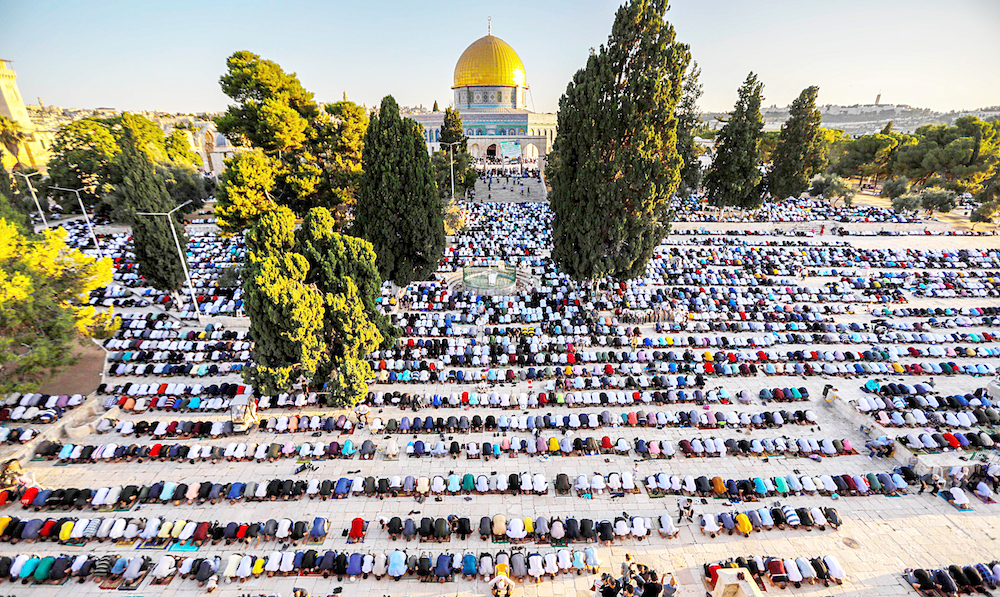
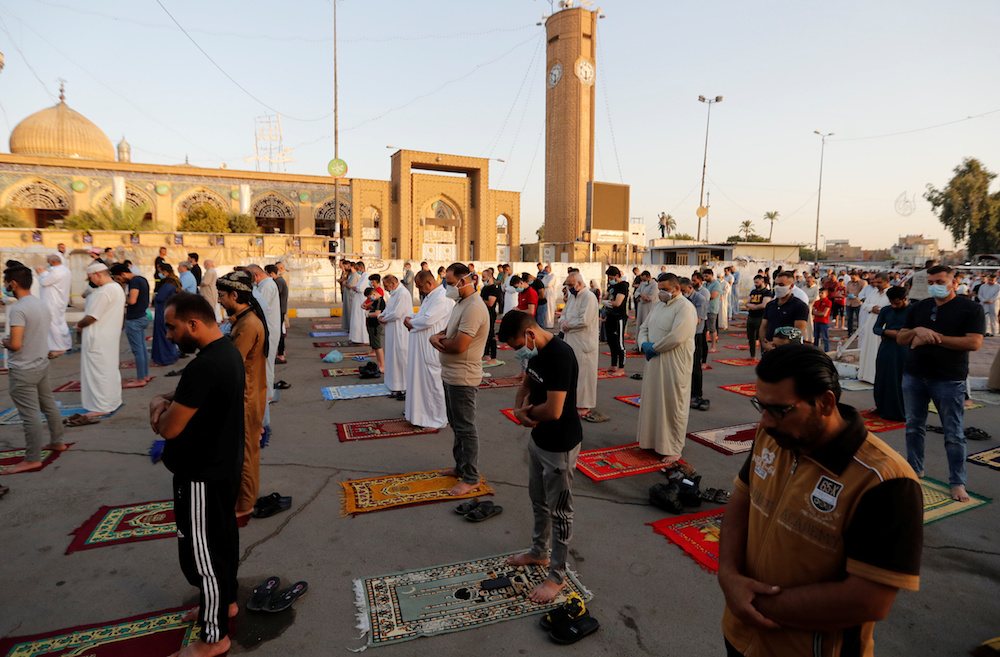
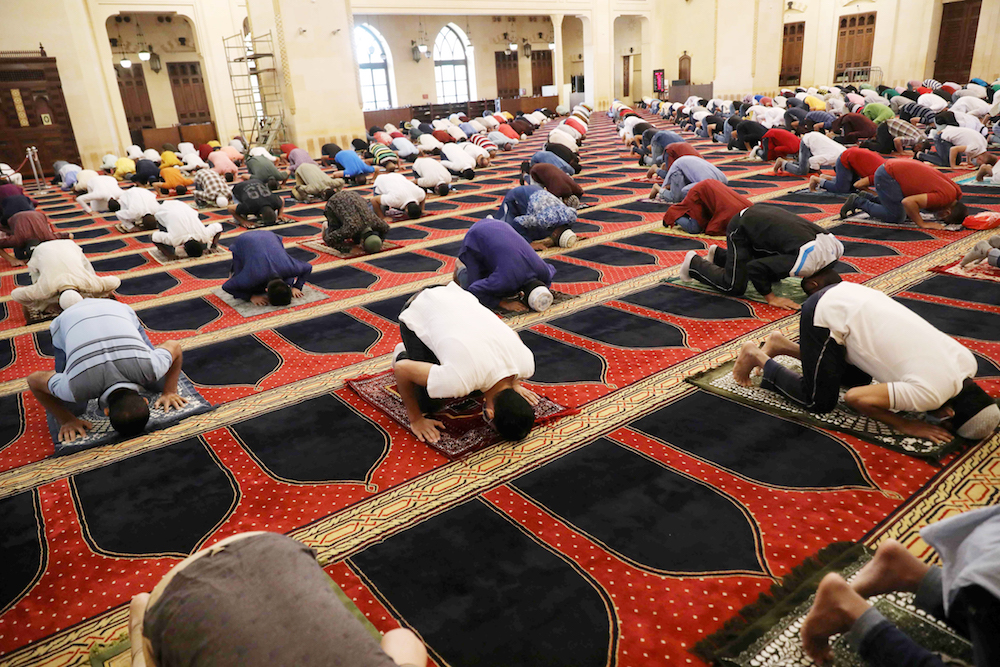
from Saudi Arabia https://ift.tt/2BSkFDi
First Dog To Test Positive For Coronavirus In US Dies: Report
from NDTV News - World-news https://ift.tt/3k0Lwyi
Review: The Numbers Add Up Nicely In Vidya Balan's 'Shakuntala Devi '
from NDTV News - Special https://ift.tt/2Pawckf
Chinese Territory Claims In Bhutan, India "Testing" The World, Says US
from NDTV News - Special https://ift.tt/3fnieGB
Chinese Territory Claims In Bhutan, India "Testing" The World, Says US
from NDTV News - India-news https://ift.tt/3fnieGB
Pentagon Awards Glaxo $342 Million Contract For COVID Vaccines
from NDTV News - India-news https://ift.tt/31a8sCC
Brazil President Jair Bolsonaro's Wife Tests Covid Positive
from NDTV News - World-news https://ift.tt/39Kful2
Blog: In New Education Policy, Modi's Giant Move vs Lutyens' Delhi
from NDTV News - Special https://ift.tt/312oMVU
Richa Was Asked About Her Wedding Date. She Gave An Adorably Honest Reply
from NDTV News - Special https://ift.tt/3jV5ZUX
Coronavirus India Live Update: Number Of Recovered Patients Cross 10 Lakh
from NDTV News - India-news https://ift.tt/3k3Dogv
UK Offers Grace Period For Visa Extensions Until End August
from NDTV News - India-news https://ift.tt/2DmZN7g
Noida Man Kidnaps Toddler Cousin For Quick Buck, 2 Arrested: Police
from NDTV News - India-news https://ift.tt/33b9bG7
Saudis’ love of volunteering on full display during Hajj
MAKKAH: Though the coronavirus pandemic has affected many things, the culture of volunteering continues to remain strong in Saudi Arabia, as citizens serve the Kingdom’s visitors from all over the world.
Mashael Al-Mubarak, the general director of volunteering at the Ministry of Human Resources and Social Development, told Arab News the Kingdom had paid special attention to the issue of volunteerism, as well as its organization and stimulation, despite the crisis.
“Voluntary work carries new horizons, hopes and aspirations in light of the pandemic. Doing voluntary work . . . symbolizes solidarity and cooperation between members of society,” she said.
“Voluntary work’s importance stems from its active role in developing societies by strengthening the belonging of citizens, investing human energies and directing them towards serving the society by relying on the principle of cooperation, partnership and creativity. The goal of volunteering is to grasp positive effects that contribute efficiently to collective efforts, in order to serve the issues that affect the different segments of Saudi society,” she added.
The Saudi government made volunteering an important axis in the Kingdom’s Vision 2030 plan, and it was included in three important programs: The National Transformation Program 2020, the National Character Enrichment Vision Realization Program, and the Doyof Al-Rahman Program.
“Volunteers played a very important role in contributing to facing the COVID-19 pandemic that invaded the whole world and reducing its negative effects with several services, the most important of which was the Volunteer Work Platform,” Al-Mubarak said.
“This platform is designed to be a pioneer in volunteer work to face the pandemic’s repercussions. It is characterized as a Saudi incubator for volunteer work that provides a safe environment, which serves and organizes the association between agencies providing volunteering opportunities and volunteers in the Kingdom.”

The number of registered beneficiaries on the platform has exceeded 228,000 with more than 2,600 organizations.
Al-Mubarak noted that the ministry had also launched a volunteering manual in crises and disasters using COVID-19 as a model, and a practical guide to help entities and individuals direct volunteering efforts to overcome the resulting repercussions.
“This guide . . . focuses on the pandemic in the Kingdom and how to reach the official authorities with whom they can volunteer during this period,” said Al-Mubarak.
She added that the ministry would take practical steps to promote volunteer work during crises and disasters, managing risks and identifying priority interventions for each target segment, and presenting a set of national initiatives, international experiences and pioneering initiatives in various countries of the world during crises and disasters to benefit from them. “The General Administration of Voluntary Work of the Ministry of Human Resources and Social Development . . . have confidence in their ability to reach one million volunteers annually by 2030, to contribute to the advancement and reconstruction of the country. In 2020, in light of the COVID-19 pandemic, the number of volunteers reached 61,753, implementing 2,279,182 volunteer hours through 22,665 opportunities,” said Al-Mubarak.
For his part, the volunteer community’s CEO, Raed Al-Maliki, told Arab News: “Volunteering is the only work that reflects the giving nature of people, as it is carried out with the selfless desire of volunteers to serve their community.”
“In Saudi Arabia, volunteer work has become a subject of the leadership’s interest and trust in the last ten years. Our leadership has faith in volunteers, of both genders, as some government sectors have launched a series of initiatives that have contributed to empowering and involving volunteers, especially in the field of serving the pilgrims, which every Saudi and expat on this Earth considers as a great honor.”
Al-Maliki said that every year, before the Hajj season, a flow of volunteers who wish to help during the season come forward. However, 2020 may be different due to COVID-19, and would require new and different initiatives, such as sterilization initiatives, social distancing measures and education for pilgrims about safety.
“I believe that a platform that brings together all initiatives related to the service of the Grand Mosque and the Prophet’s Mosque’s visitors should be launched, in order to organize volunteer efforts in the Hajj and Umrah season. It will be supervised by a program serving God’s guests, which was inaugurated by King Salman in 2019 and is one of the Saudi Vision 2020 programs,” said Al-Maliki. “This program analyzes and identifies the need for volunteers, by engaging them in voluntary opportunities belonging to non-profit organizations in order to provide an opportunity to participate in serving the pilgrims and achieving the development goals of the program.”
It is through this organization that volunteers can carry out their work easily and effortlessly, without the trouble of searching for their voluntary needs, he said. They will not be exposed to exploitation or loss of rights, as this platform will be the link and guarantor for all parties and the coordinator of their relationship.
“We in the volunteer community have contributed over the past two years to empowering more than 3,500 volunteers through the ‘Tamkeen’ projects aimed at qualifying volunteer leaders. We also launched the volunteer counseling service, which provided 1,200 voluntary counseling sessions in one year,” said Al-Maliki.
Meanwhile, Dr. Ghada Al-Ghunaim, a member of the Board of Trustees of the King Abdul Aziz Center for National Dialogue, said: “Saudis are passionate about volunteer work and have extensive experience and expertise, whether within the Kingdom or abroad.”
Al-Ghunaim added that the most important thing that governs volunteerism is the presence of an official body that shields this work, organizes it and ensures its reliability, to reassure parents that their children are under a governmental administration that is properly enhancing and qualifying their capabilities, and immunize them against extremism, and some agendas that function outside of the volunteering framework.
She said that volunteers have become more aware of their responsibilities, the parties they join, their rights, and what they are supposed to offer. The relationship between volunteers and the organizations they work with is more like a contract characterized by commitment, transparency and professionalism, in addition to having great benefits on self-control and preparation.
On her personal experience, Al-Ghunaim said that she spent nine years volunteering inside Saudi Arabia and abroad, which prepared her for the labor market, adding that it was a rehabilitative culture, filling free time and meeting needs.
The pilgrimage this year would not neglect the importance of organizing volunteerism, despite the small numbers of pilgrims, she added. “Volunteers are expected to be trained on how to act, on precautionary measures, and on requirements, in addition to acting cautiously and responsibly.”
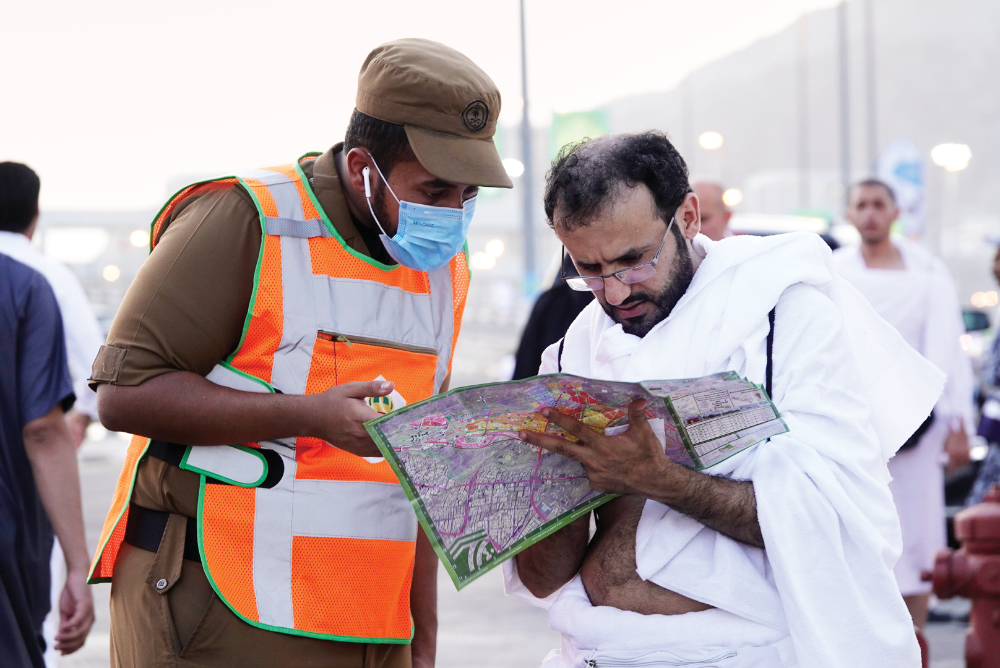
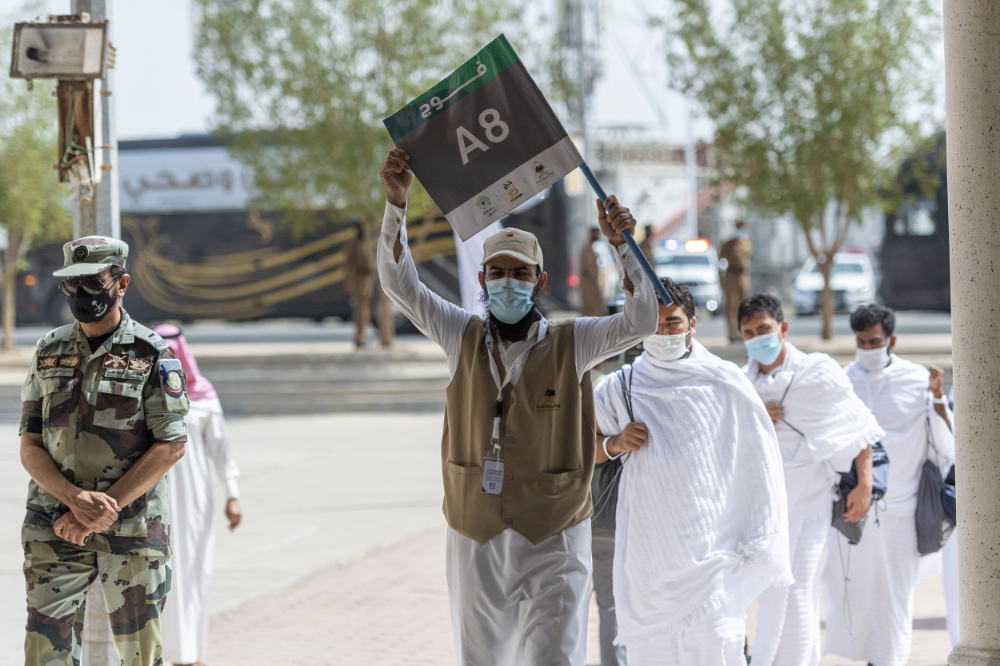
from Saudi Arabia https://ift.tt/30e93Ut
Saudi media plays key role in ‘fight against human trafficking’
RIYADH: Majid Al-Qasabi, Saudi Arabia’s acting minister of media, says that the Kingdom is acting to prevent human trafficking through the enactment of internal laws and accession to international instruments aimed at combating the crime.
This came in his speech on the occasion of World Day against Trafficking in Persons, which falls on July 30 each year. Al-Qasabi said that trafficking was one of the most heinous crimes that violated human rights and deprived people of their freedom and dignity, and was prohibited in all religions, constitutions and global covenants.
The media sector had an effective and influential role to play in reducing and combating trafficking, he said.
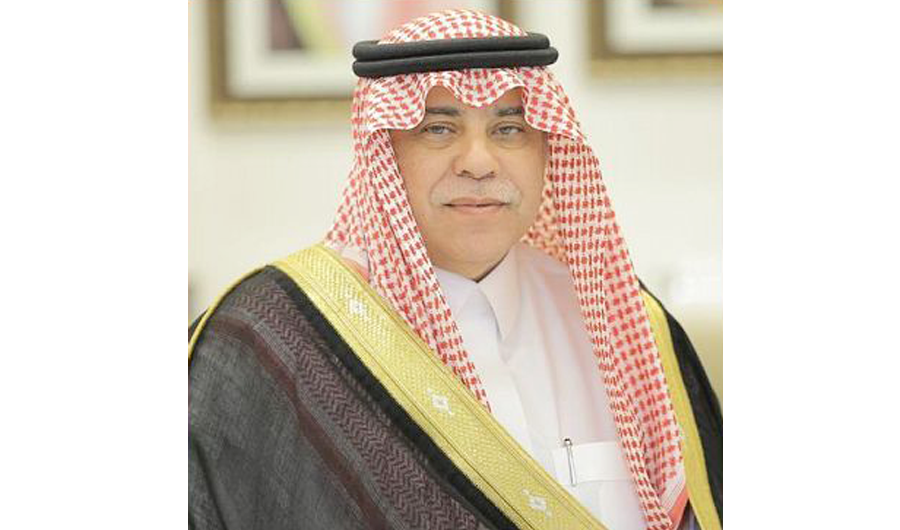
from Saudi Arabia https://ift.tt/2PaeZaD
Saudi authorities monitor health violations in Eastern Province
DAMMAM: The Eastern Province municipality has carried out 547 field inspection tours in the region as part of coronavirus precautionary measures.
The tours were carried out with the relevant authorities to ensure that preventive and precautionary protocols were in place to enhance the health and safety of Saudi nationals and residents.
The inspections resulted in dozens of violations: 52 for noncompliance with precautionary and preventive measures, and 14 for accumulation in commercial markets.
Tours were also carried out to disinfect and clean 741 sites in the districts and public streets of the area.
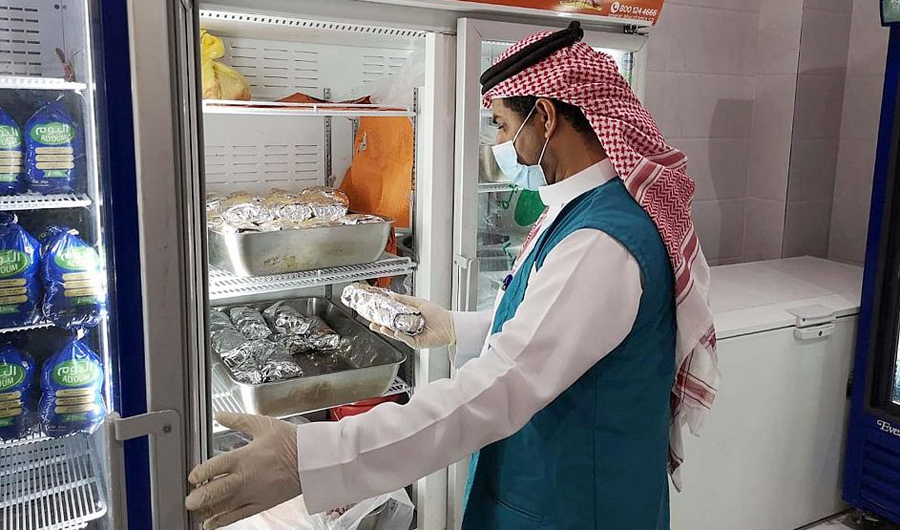
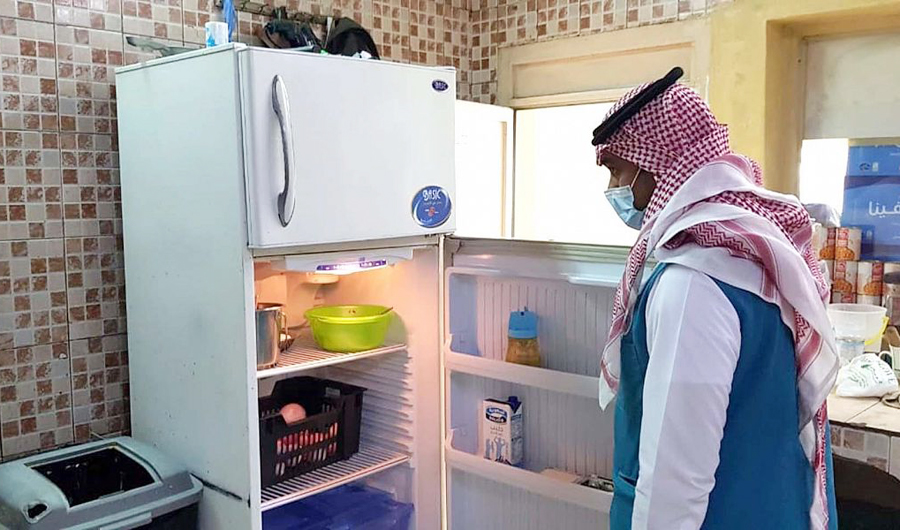
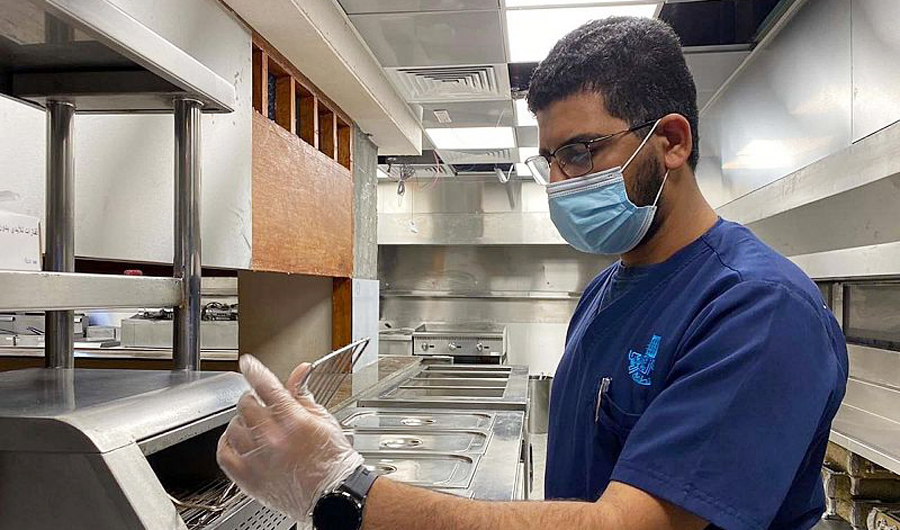
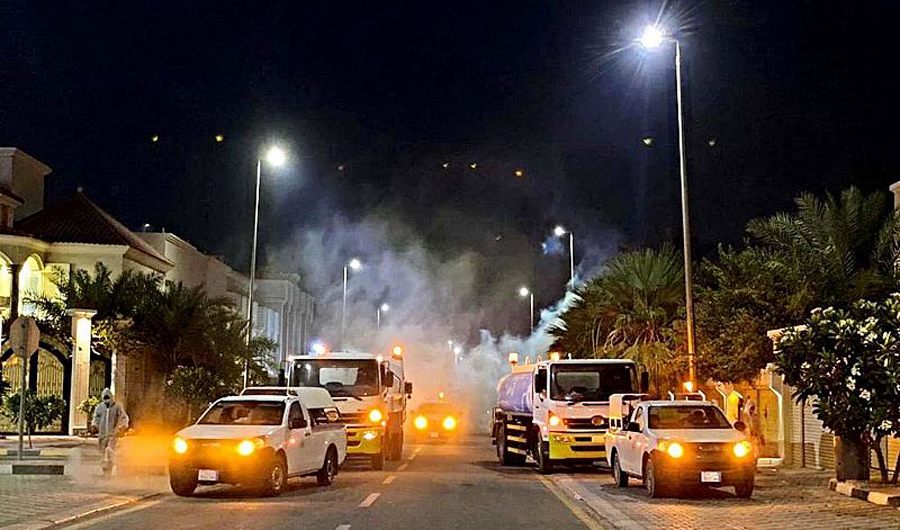
from Saudi Arabia https://ift.tt/39G9WrU
Saudi Film Festival to be held online in September
DAMMAM: The Saudi Film Festival will be held virtually from Sept. 1-6 and broadcast online, its organizing committee said.
Interviews with filmmakers as well as workshops will be among highlights of the festival’s sixth edition. Audiences will watch the festival live and vote for their favorite films. Organizers said the decision to livestream the festival was taken in light of the coronavirus pandemic, which would deter many from attending.
Films and scripts selected for the festival will be announced shortly along with details of competitions and workshops.
Since its first edition in 2008, the festival has celebrated and screened Saudi films, giving local productions access to a wider audience. SPA Dammam

from Saudi Arabia https://ift.tt/2XaUXRI
Saudi Arabia’s aid center gives Eid clothes to Yemeni children
SHABWA: The King Salman Humanitarian Aid and Relief Center (KSRelief), in cooperation with Al-Khair charity, has distributed 1,750 bags of clothing to Yemeni children for Eid Al-Adha.
The packages, containing 5,250 items of clothing, were handed out to displaced and orphaned youngsters in Yemen’s Shabwa governorate.
The latest assistance is part of a broad range of projects offered by the Kingdom through the center to the Yemeni people.
KSRelief will distribute 84,750 gifts to displaced and orphaned children in several provinces in Yemen under its “Their Happiness is Our Hope” project. SPA Shabwa
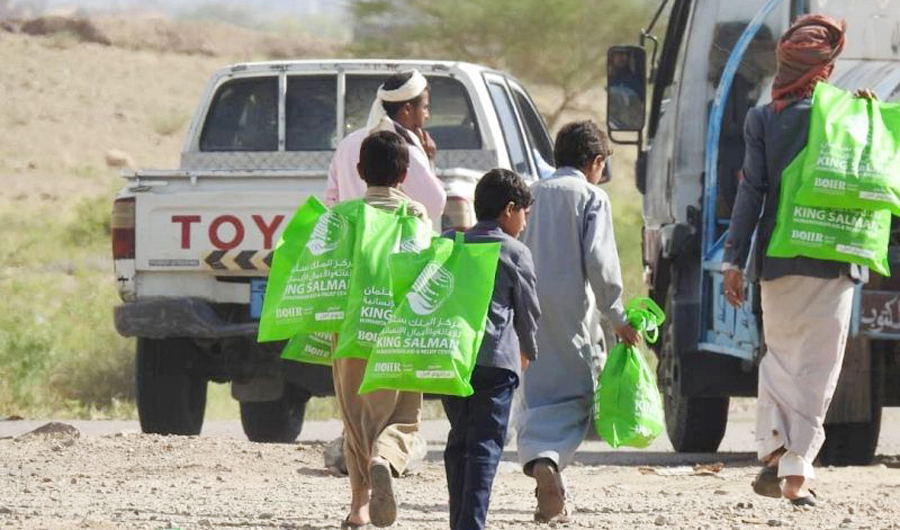
from Saudi Arabia https://ift.tt/2Di1H9w
Muse Rawan: What We Are Buying Today
Muse Rawan is a Saudi unisex jewelry house inspired by the landscape, architecture, archaeological treasures and ancient history of the Saudi Arabian desert.
The business was launched in 2016 by Saudi jewelry and fashion designer Rawan Al-Sehli.
Muse Rawan design house has reinvented the concept of traditional jewelry with modern pieces that embody the archaeological wonders found in the Kingdom’s deserts.
The brand tells the untold stories behind monuments and artefacts found in the diverse deserts of Saudi Arabia.
Muse Rawan will introduce you to rare pieces through their three spectacular collections, including the Islamic architecture collection. The collections feature the finest jewelry, using 18-carat and 21-carat gold decorated with precious stones that include sapphires, emeralds, diamonds and rubies.
Muse Rawan is sold online throughout the world and aims to spread the greatness of Saudi Arabian ancient history via necklaces, wedding rings, cufflinks, earrings and bracelets.

from Saudi Arabia https://ift.tt/2XcYnn6
Hajj sermon focuses on social solidarity and cure for corona
JEDDAH: Pilgrims successfully and safely completed rituals on Arafat day, the most important day of the Hajj, following preventive protocols approved by the Ministry of Health.
Flocking from Mina to Arafat on Thursday, pilgrims attended the annual sermon at Namirah Mosque and spent the day in supplication, praying and reading the Qur’an until sunset.
They were transported from Mina to Arafat under strict precautionary measures, with each group accompanied by security, ambulances, and civil defense vehicles.
“The camps were set up for pilgrims in Arafat early on,” Minister of Hajj and Umrah Dr. Mohammed Saleh Benten said. “The camps are equipped with all necessary services to help pilgrims perform their rituals in ease and reassurance, according to sanitary procedures and social distancing measures.”
He noted that pilgrim selection processes were rigorous and precise from a health perspective, and that each pilgrim obtained a health certificate proving that they were free of the coronavirus disease (COVID-19).
Arafat day, the second day of Hajj, is one of the largest religious gatherings on earth. Pilgrims used to make their way to about 20 kilometers (12 miles) east of central Makkah in their tens of thousands on buses, with some traveling on foot. However, due to COVID-19, the remarkable gathering was canceled for the first time in modern history.
The Hajj climaxes on the plain of Arafat. Being on Arafat on the ninth of Dul Hijjah, even if only for a few moments, is a pivotal rite; any pilgrim who fails to reach the Plain of Arafat on that day is considered not to have completed their journey, and must repeat the ritual another year. Saudi Sheikh Abdullah Al-Manea delivered the Arafat sermon at Al-Namirah Mosque, and led the pilgrims in the noon and afternoon prayers.
“In Hajj this year, we reiterate that it is essential for pilgrims, as well as everyone assisting them, to adhere to the precautionary regulations that have been implemented. This is to be done for their own safety,” said Al-Manea, a member of the Council of Senior Scholars, during the sermon.
He added: “Precautions have been put in place to protect lives against the damage that the pandemic can cause, and also to actualize Islam’s teachings pertaining to safeguarding human life by Allah’s permission.”
Al-Manea prayed to remove the pandemic, cure the ill, and enable researchers and those working in the medical field to uncover treatments for diseases.
He also prayed for peace and love between peoples, and called on Muslims to uphold ties of kinship, foster harmony, togetherness, and social solidarity.
Moreover, the Saudi Ministry of Islamic Affairs, Dawah and Guidance launched a robotic service for the first time at Al-Namirah Mosque, acting as a mufti offering religious counseling services for pilgrims who had inquiries about any issue or Hajj rituals. The robot allows pilgrims to directly speak to scholars through video calls and ensures commitment to social distancing.
Pilgrims were also gifted with care packs that contained masks, anti-bacterial wipes, sanitizer, a bag for their prayer mats and an umbrella to beat the heat.
After standing on Arafat, pilgrims headed to the holy site of Muzdalifah in separate groups, according to health protocols. Muzadlifdah is where pilgrims collect pebbles before heading back to Mina for the Jamarat rite, the symbolic stoning of the devil.
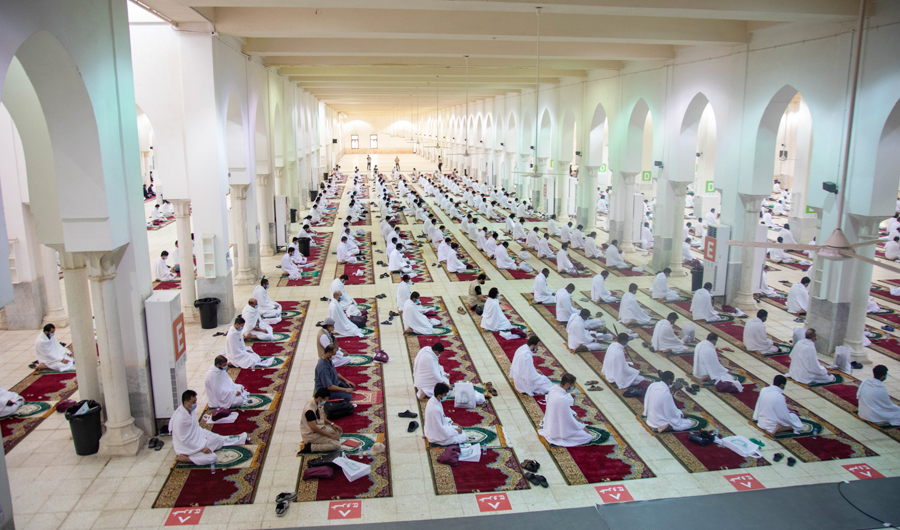
from Saudi Arabia https://ift.tt/2Xd1rjg
Saudi medical masks, gowns manufacturer amps up daily production for Hajj season
RIYADH: As this year’s Hajj season unfolds amid unprecedented circumstances due to the novel coronavirus disease (COVID-19) pandemic, Saudi Arabia’s largest manufacturer of medical masks, gowns and comprehensive medical packs has amped up its daily production to meet needs in the holy city.
The Enayah factory supplies medical products for the local market and exports to Gulf Cooperation Council countries, Arab countries and Europe.
Asma Al-Kaf, the quality assurance supervisor of the factory, told Arab News that the factory’s daily capacity has increased from around 30 to 40 percent for the duration of the Hajj season.
Breaking down the daily production for the factory operating in Riyadh’s industrial area, Al-Kaf said: “Our main capacity for surgical gowns is 70,000; 50,000 for surgical packs; 100,000 for protective isolation gowns; 80,000 for medical accessories, such as head covers; 300,000 for face masks; and 40,000 per day for sterilization reels and pouches.”
The factory’s daily output level is in line with the Kingdom’s health and safety preparations, which have been put in place to receive Hajj pilgrims in Makkah in accordance with precautionary measures aimed at preventing the spread of the virus.
HIGHLIGHTS
• The Enayah factory’s daily capacity has increased from around 30 to 40 percent in line with the Kingdom’s health and safety preparations, which have been put in place to receive Hajj pilgrims in Makkah in accordance with precautionary measures aimed at preventing the spread of the virus.
• The Health Ministry’s plans to ensure the safety of pilgrims attending this year’s annual Hajj pilgrimage include a hospital in Mina, six ambulances, three clinics at pilgrim accommodations, a field hospital, a mobile hospital, and a clinic in Arafat.
The Enayah factory is doing its part to provide adequate medical supplies to ensure a safe Hajj season. The Saudi Ministry of Health is providing mobile clinics on buses to accompany pilgrims as they travel across the holy sites throughout the different stages of the pilgrimage.
There are five mobile clinics equipped with all necessary medical equipment and accompanied by a qualified health team, a general physician for the initial examination of patients, a dental clinic, and a laboratory.
Clinics are kitted out to take samples and test them, perform X-rays, and provide medication to patients.
The Health Ministry’s plans to ensure the safety of pilgrims attending this year’s annual Hajj pilgrimage include a hospital in Mina, six ambulances, three clinics at pilgrim accommodations, a field hospital, a mobile hospital, and a clinic in Arafat.

from Saudi Arabia https://ift.tt/3fg1qRq
Services to pilgrims based on latest technological innovations, minister says
RIYADH: Technology is being harnessed again this year to provide better services for pilgrims, according to Dr. Abdul Fattah bin Suleiman Mashat, Saudi Arabia’s deputy minister of Hajj and Umrah.
Mashat said that for the second year in a row, the ministry had implemented the “smart card” initiative, which aimed to provide high-quality services to pilgrims and facilitate the journey of worshippers while performing their rituals.
The “smart card” was an extension of the “Smart Hajj” platform, which covers the digital identity of the pilgrim. Mashat said that, with this year’s requirements, services related to the card had been developed to include the personal, medical and residential information of the pilgrim, including his Hajj regiment, bus and seat number, residence, room number and bed.
In addition, it helped to guide pilgrims to their homes and controlled their entry to site facilities, in addition to reducing irregular pilgrims.
Mashat said that one of the most important features of the “smart card” was its design — using a set of color groups related to program services, grouping and transfer — and included NFC technology to read Hajj data through self-service devices. In addition, it contained a barcode that Hajj workers were able to read to improve services provided to pilgrims.
He said that the ministry had started the implementation of the strategic executive plan for this year’s Hajj season early following the Kingdom’s decision to organize Hajj for very limited numbers. This was to prevent the spread of the coronavirus as it would have been impossible to ensure social distancing had a large number of pilgrims been received.
Mashat said: “The ministry, and all parties concerned with organizing this year’s Hajj season, were keen on procuring the best services to pilgrims while applying the highest health and safety standards, and the preventive and precautionary measures, according to the directions of the Kingdom’s leadership to provide the best services to the pilgrims.”

from Saudi Arabia https://ift.tt/30gEo98
Sarah Al-Tamimi, vice chair of Saudi Arabia’s National Committee to Combat Human Trafficking
Sarah Al-Tamimi has been the vice chair of Saudi Arabia’s National Committee to Combat Human Trafficking since February 2020. Her work includes coordination with ministries and authorities working together as a national team.
As part of her capacity-building strategy, Al-Tamimi oversees training programs at the committee with partners at the UN Office on Drugs and Crime (UNODC) for the Gulf Cooperation Council region and the International Organization for Migration, as well as coordinating protection responses for victims and potential victims of trafficking.
Al-Tamimi holds a BA in international relations from Tufts University, an MBA from MIT, and a master of public administration from the Harvard Kennedy School.
She joined the committee’s fight against human trafficking in October 2019. One of her responsibilities was developing the committee’s strategy.
Coinciding with the World Day against Trafficking in Persons on July 30, Al-Tamimi has been nominated by UNODC for her efforts in raising awareness of the issue. UNODC’s campaign this year focused for the first time on profiling people that work in human trafficking. Nominations came from offices around the world and Al-Tamimi was the only person chosen from the GCC countries.
“Enhancing quality of life for all is a key pillar of Vision 2030, which is a goal we also strive for at the committee,” she said.
“Human trafficking is a crime that knows no borders, therefore neither can we who fight it,” said Al-Tamimi.
“Combating human trafficking requires the participation of a variety of international and local actors that goes far beyond the public sector and operates in areas ranging from cyberspace to private sector supply chains.”
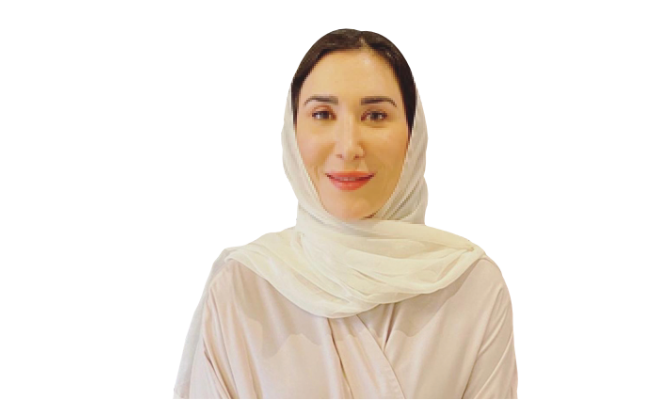
from Saudi Arabia https://ift.tt/3gaMkhw
August 5 "Deliberately" Chosen For Ayodhya Event: CPI(M)
from NDTV News - Special https://ift.tt/3hWpfPZ
Lt Governor Vetoes AAP Government On Delhi Riots Lawyers' Panel
from NDTV News - Special https://ift.tt/33bcgpO
West Bengal Congress President Somen Mitra Dies At 78
from NDTV News - Special https://ift.tt/2EAWme9
ONGC Invites Applications For Apprenticeship
from NDTV News - India-news https://ift.tt/39DUFYF
West Bengal Congress President Somen Mitra Dies At 78
from NDTV News - India-news https://ift.tt/2EAWme9
Flight Carrying 145 Indians From Kyrgyzstan Lands At Indore Airport
from NDTV News - India-news https://ift.tt/3gfzO0q
China Tried To Steal Vaccine Research From US University: Investigators
from NDTV News - World-news https://ift.tt/39Io0RU
Kamala Harris for Vice President? Joe Biden's Notes Fuels Speculation
from NDTV News - World-news https://ift.tt/3fbLRuf
Kamala Harris for Vice President? Joe Biden's Notes Fuels Speculation
from NDTV News - Special https://ift.tt/3fbLRuf
Updates: India Ends Night Curfew; COVID-19 Death Count In US Tops 150,000
from NDTV News - India-news https://ift.tt/2D3JLzB
US Warns Of "Consequences" If Brazil Picks Huawei 5G
from NDTV News - World-news https://ift.tt/30YV4B9
Brazil's COVID-19 Death Count Surpasses 90,000
from NDTV News - World-news https://ift.tt/3fefScR
4 Navy Officers Submitted Fake Bills Worth Rs 6.76 Crore, Says CBI
from NDTV News - Special https://ift.tt/2D2K0ef
SR187m of debt paid via Saudi Arabia's Furijat initiative
RIYADH: The value of debt paid through donations as part of the Interior Ministry’s Furijat initiative has reached more than SR187 million ($50 million).
According to a media spokesman for the General Directorate of Prisons, 1,356 citizens and residents have benefited from the program since its launch during Ramadan.
The initiative aims to provide a simple, safe medium through which to donate money to pay the debts of people convicted in noncriminal financial cases and who are eligible for benefits from government support programs.
In collaboration with the Ministry of Justice, the Ministry of Human Resources and Social Development, the Saudi Authority for Data and Artificial Intelligence and the Saudi Arabian Monetary Authority (SAMA), Furijat is accessible via the Absher electronic platform.
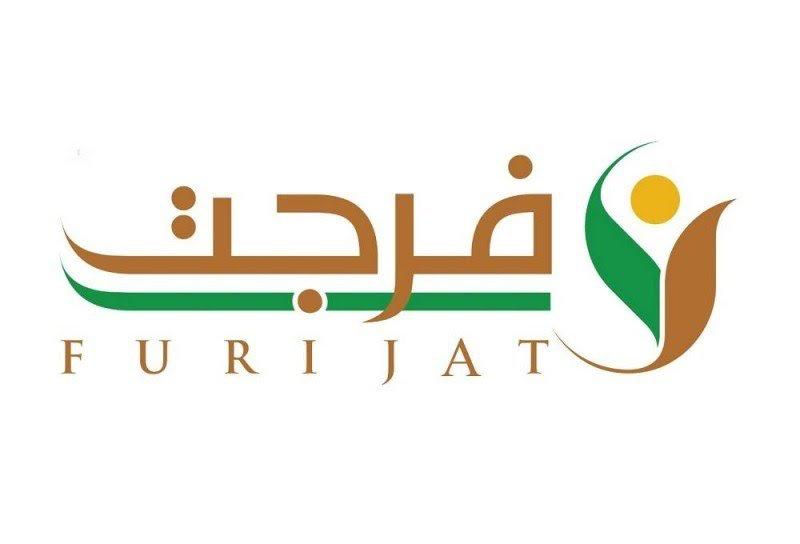
from Saudi Arabia https://ift.tt/309Cu9Z
Art and passion: Creative secrets of the Kiswa calligrapher
RIYADH: With a steady and sturdy hand, a calligrapher’s passion and commitment to the art of the written word can be displayed through various mediums, but none more honorable than displaying that passion on the Holy Kaaba’s Kiswa (curtain).
Mokhtar Alim Shokder, a calligrapher at the Kiswa Factory of the Holy Kaaba in Makkah, fell in love with calligraphy at a young age and developed his skill over the years, which landed him the prestigious and honorable position he is in today.
As a third-grader, he joined a three-month calligraphy course during the summer of 1977 held in Makkah’s Grand Mosque. At the outset, he showed extraordinary skills, which impressed his teachers, and he was made a calligraphy teacher the following year.
With practice and determination, Shokder fell more in love with calligraphy and felt happier when his skills improved.
“I would practice for long hours each day because I loved Arabic calligraphy. My classmates would come and ask for tips on how to improve their handwriting,” he recalled. “I felt overjoyed, with a strong drive to perfect my skills. My colleagues and I would spend long hours training nonstop, with full focus on the tasks at hand to perfect our work.”

Mokhtar Alim Shokder, a calligrapher at the Kiswa Factory of the Holy Kaaba in Makkah, fell in love with calligraphy at a young age and developed his skill over the years.
(Supplied/ Reuters)
His preferred type of font is Naskh, a sans-serif script that is characterized by the lack of “hooks” on the ends of ascending and descending strokes, considered to be one of the earliest forms of Islamic calligraphy and which is used in the Holy Qur’an. However, he uses the Thuluth font more often, because it allows for curved and oblique lines and slopes, and is used for writing on the Kiswa.
Shokder said that Kiswa writing methods had developed immensely, noting that the calligraphy takes a lot of time and requires patience and precision.
He was influenced by several calligraphers, especially the 19th-century Ottoman calligrapher Sami Efendi, whose works were prominent during his time for its attractive design for vowel signs, decorations, and numbers. Heavily influenced by his work, Shokder was impressed the first time he saw one of Efendi’s works, calling him a role model for all calligraphers.
After teaching calligraphy for several years at the Grand Mosque, he enrolled at Umm Al-Qura University’s Art Education Department in 1989 to hone his skills. He said he benefited most from Muhammad Hassan Abu Al-Khair, a professor at the department and a famous calligrapher known to participate in several competitions and exhibitions.
FASTFACTS
- As a third-grader, Mokhtar Alim Shokder joined a short course during the summer of 1977 held in Makkah’s Grand Mosque. His preferred type of font is Naskh, a sans-serif script that is characterized by the lack of ‘hooks’ on the ends of ascending and descending strokes.
- Due to his extraordinary skills, he was made a calligraphy teacher the following year.
- After teaching calligraphy for several years at the Grand Mosque, he enrolled at Umm Al-Qura University’s Art Education Department in 1989 to hone his skills.
- His preferred type of font is Naskh, a sans-serif script that is characterized by the lack of ‘hooks’ on the ends of ascending and descending strokes.
- However, he uses the Thuluth font more often, because it allows for curved and oblique lines and slopes, and is used for writing on the Kiswa.
“The artistic works need a lot of patience and precision. For example, to write five words using calligraphy can take you two to three months and sometimes longer,” said Shokder. “It is the execution of the work that takes a long time. Some people think that such an artwork that has three words can take an hour but this is not true.”
According to Shokder, calligraphers will spend long hours working and have to bear the pressure associated with executing such works, to hone and perfect skills with years of practice and training.
In 2003, he was appointed the sole calligrapher for the Kiswa, a position his father saw in a dream, a moment he cherishes deeply. “It was one of the happiest moments of my life and a great blessing from God, for which I will always be indebted. My father’s dream came true,” he said.
The methods of writing on the Kiswa have developed over the years. The late calligrapher Abdulraheem Ameen Bokhari, Shokder’s predecessor, used chalk to write the script on the silk cloth. In later years, silk-screen printing was introduced which allows the calligrapher to save the script and preserve it on a computer, a method which allowed the Kiswa’s calligrapher to improve the script.

Mokhtar Alim Shokder, a calligrapher at the Kiswa Factory of the Holy Kaaba in Makkah, fell in love with calligraphy at a young age and developed his skill over the years.
(Supplied/ Reuters)
“In older times, ink was used to write the words on papers, then the edges of the letters would be punched with a needle, the papers would be placed on a black fabric, the surface of which would be used for writing,” said Shokder. “Later, a transparent bag made of cloth would be filled with white powder that would be used together with the papers to punch letters on. An embroiderer would use a thread to identify the outside edges of each letter then start his process of embellishing.”
Shokder noted that the process of developing the writing methods was only approved after thorough studies had been conducted on the methods.
Writing on the Kiswa requires strong skills and long hours of training to master the skill. Another challenging part of his job would be the compound and overlapping texts, which require the calligrapher to try several times before reaching the desired outcome, which should be beautiful and with the logical order of words and combine all the elements of the art.
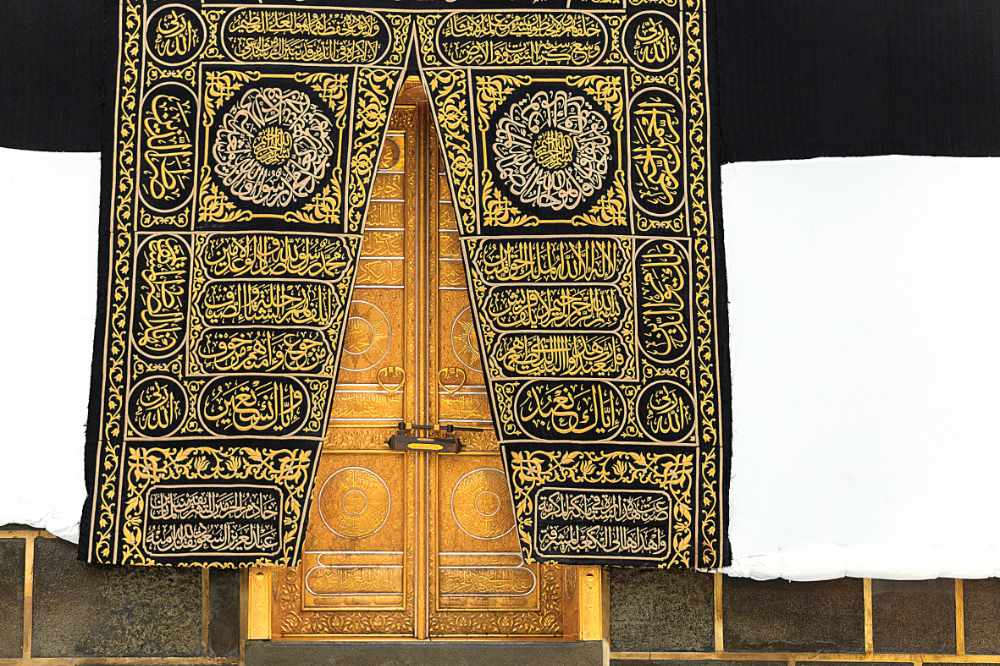
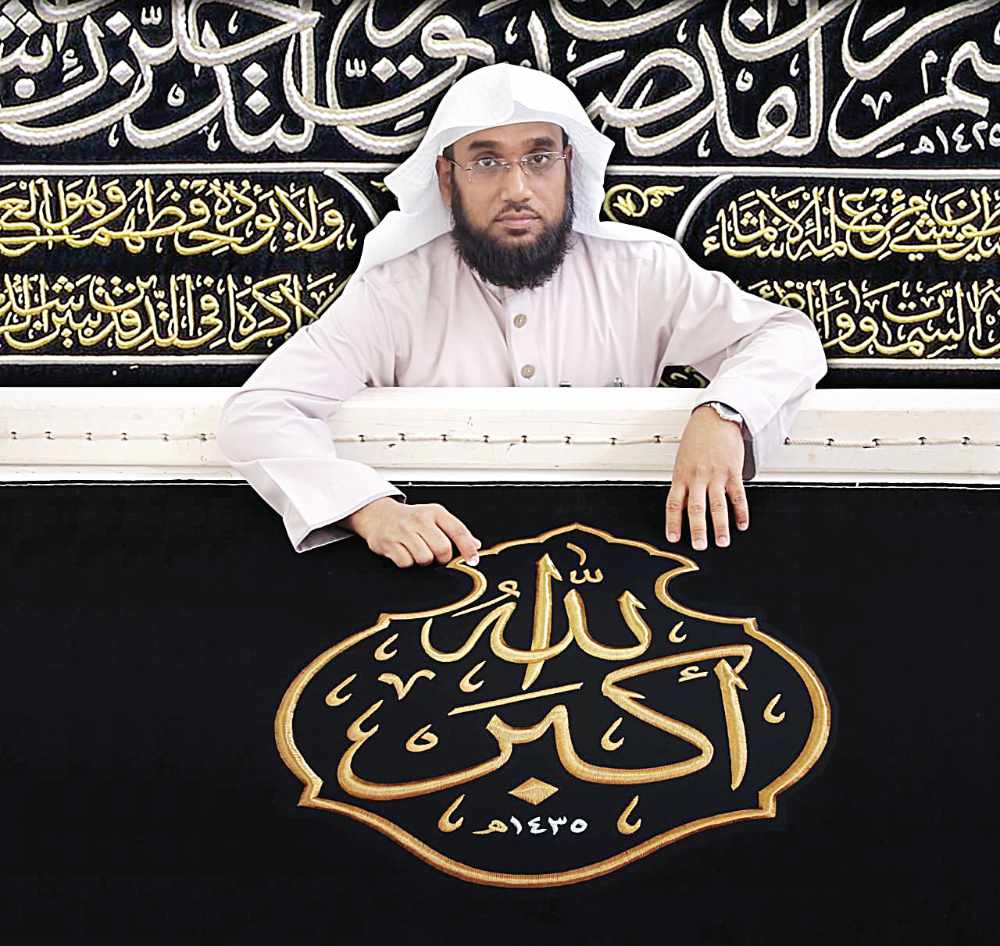
from Saudi Arabia https://ift.tt/3081bno




